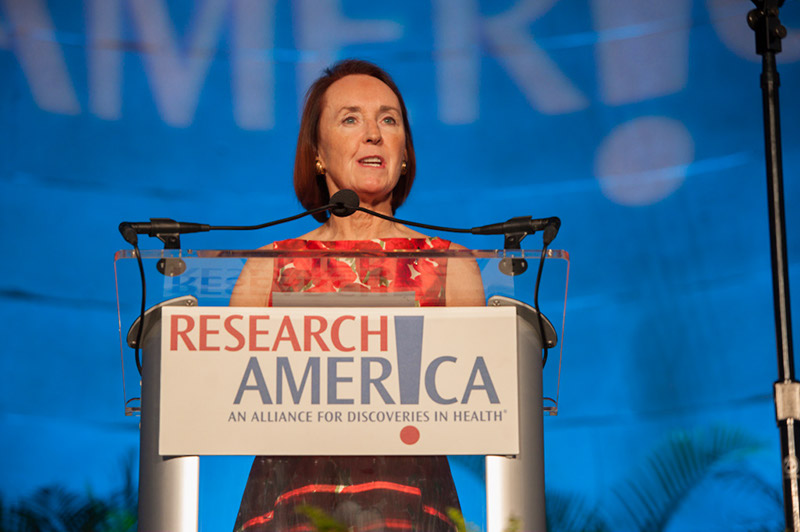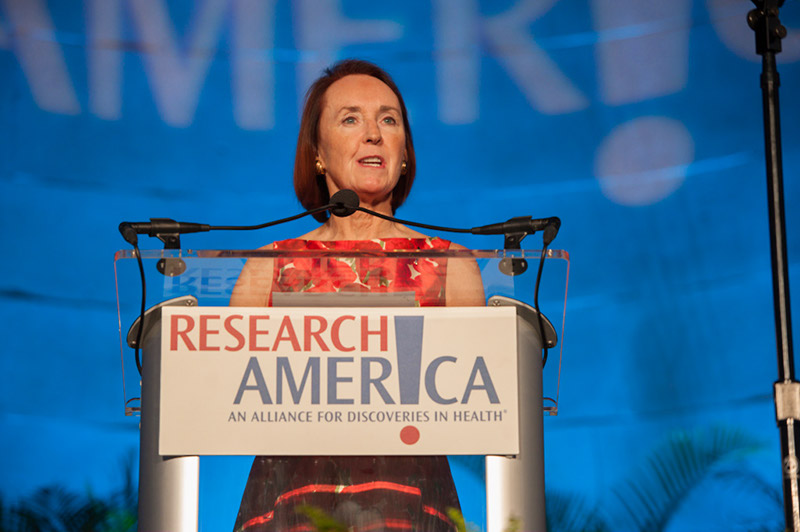Science and fiscal responsibility

 Dear Research Advocate,
Dear Research Advocate,
Budget conversations are back to the fore. President Trump has made it clear that his budget will cut non-defense discretionary (NDD) deeply. NDD makes up only about 16% of the federal budget, but fuels a wide range of crucial American priorities like education, criminal justice, services for veterans, public health, child protection and science. As Senator Lamar Alexander (R-TN) recently made clear cutting non-defense discretionary (NDD) funding is not a viable strategy for addressing our nation’s fiscal issues. We agree and challenge advocates for research to speak up for the role of science in stabilizing our fiscal future.
On The Bio Report podcast today, I talked about how President Trump has made clear that he will fully fund our military to assure American strength; I urged the President to fully fund science as well — so much is at stake! I talked, too, about how our recent commissioned survey results underscore the need for scientists to get much more engaged. Since the American public overwhelmingly believes scientists are the most trustworthy spokespersons for science, it’s important for them/you to speak out! Get involved now by sharing a photo and a few words on social media with the hashtag #actuallivingscientist. Listen to this radio segment from Congressman Bill Foster (D-IL) for inspiration and contact Anna Briseno, at [email protected] for tips.
Speaking of science and fiscal responsibility, earlier this week NIAID Director Anthony Fauci, M.D., again made the case for a standing fund to enable rapid CDC and NIH response in the event of public health emergencies. Use this action alert to echo his call to action.
No one is more skilled at making the case for science than AAAS CEO, former Congressman and Research!America board member Rush Holt, Ph.D., who testified this week at a House Science Committee hearing about the importance of unbiased, science-driven decision making. AAAS is leading the way in another arena as well, with a letter opposing the travel ban. Sign-ons are still being accepted — email Joanne Carney at [email protected].
In another development this week, HHS sent a memo to staff that helps (but doesn’t completely) clarify the positions eligible for exemption under the White House hiring freeze. On Tuesday, Reps. Upton (R-MI) and DeGette (D-CO) sent a letter to OMB expressing concern about the impact of the freeze on FDA, and it appears that at least some of the positions related to drug and device reviews may be exempt. Hopefully, but not definitively, user-fee funded positions can be filled. Stay tuned…
As you know, Reps. Upton and DeGette initiated and championed the 21st Century Cures initiative. I was recently asked by Dr. George Lundberg, the Editor in Chief of CollaborX (among his many distinctions), to join an ongoing conversation about the impact of this landmark bill.
I hope you will join us for two exciting events next week: Tuesday, February 14, we are holding a Capitol Hill briefing, Medical Innovation 101, from noon to 1:00 p.m. in Rayburn House Office Building, room 2045. RSVP to Rachel Weissman at [email protected]. Secondly, Thursday (2/16), Senate Majority Labor-H Appropriations Clerk, Laura Friedel, will join us for a Research!America alliance member call at 2:00 EST. Please email Jacqueline Lagoy at [email protected] for call-in information.
Sincerely,
Mary Woolley




